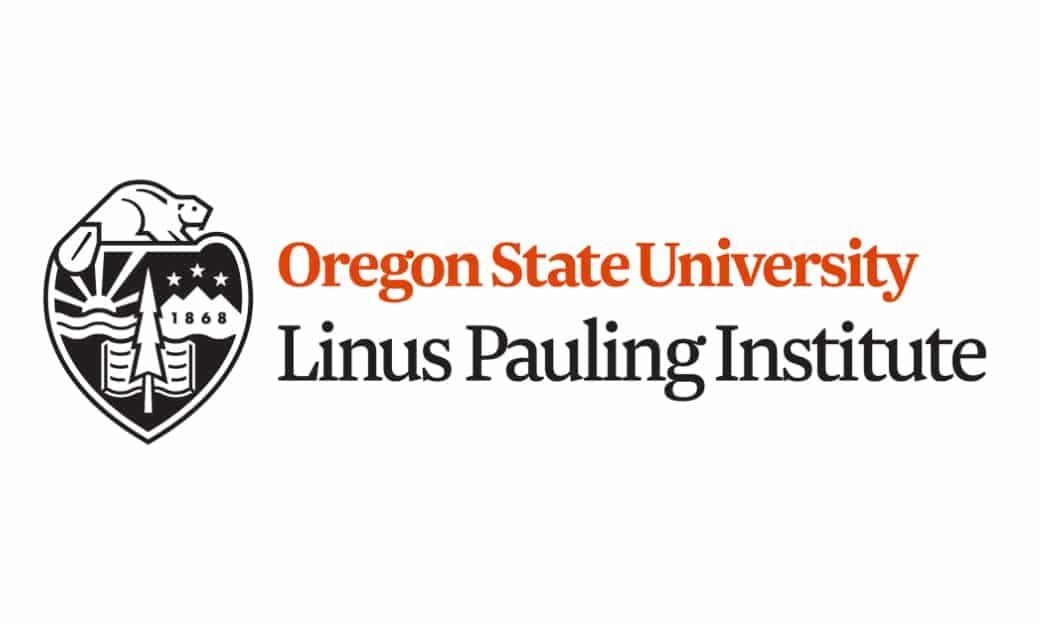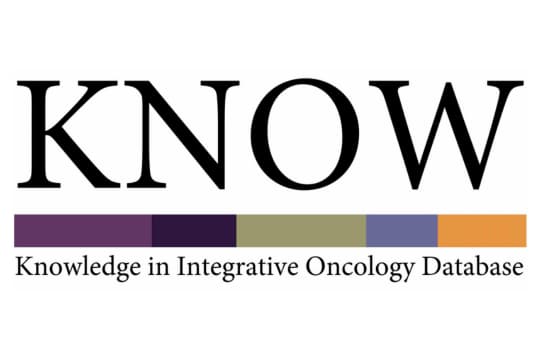Resveratrol is a natural antioxidant compound found in grape skins and other foods and widely available as a supplement. It is linked to body terrainthe internal conditions of your body, including nutritional status, fitness, blood sugar balance, hormone balance, inflammation and more that is less favorable to cancer growth and spread.
Are you a health professional?
This section does not replicate the other information on this topic but provides additional details or context most relevant to professionals.
Modes of action
“As a naturally occurring small molecule, resveratrol has been shown to be capable of mediating cancer therapy via targeting multiple pathways involving cancer initiation, promotion and progression.”1Xiao Q, Zhu W et al. A review of resveratrol as a potent chemoprotective and synergistic agent in cancer chemotherapy. Frontiers in Pharmacology. 2019 Jan 9;9:1534; Zhang L, Wen X, Li M, Li S, Zhao H. Targeting cancer stem cells and signaling pathways by resveratrol and pterostilbene. Biofactors. 2018 Jan;44(1):61-68. Resveratrol targets the Notch signaling pathway in glioblastoma cell lines.2Gersey Z, Osiason AD et al. Therapeutic targeting of the notch pathway in glioblastoma multiforme. World Neurosurgery. 2019 Nov;131:252-263.e2. One review highlights the role and related molecular mechanisms of resveratrol in cancer treatment, focusing on the role of resveratrol in the tumor microenvironment and the sensitization of cancer cells for chemotherapy and radiotherapy.3Jiang Z, Chen K et al. Resveratrol and cancer treatment: updates. Annals of the New York Academy of Sciences. 2017 Sep;1403(1):59-69.
“The inhibition of tumors in response to curcumin and/or resveratrol was associated with the reduction in proliferation and stimulation of apoptosis accompanied by attenuation of NF-kappaB activity. In vitro studies have further demonstrated that the combinatorial treatment caused a greater inhibition of constitutive activation of EGFR and its family members as well as IGF-1R.”4Majumdar AP, Banerjee S et al. Curcumin synergizes with resveratrol to inhibit colon cancer. Nutrition and Cancer. 2009;61(4):544-53.
Preclinical evidence
Notable preclinical evidence is presented here; clinical evidence is summarized in How can resveratrol help you? What the research says ›
Resveratrol protected against the toxicity induced by carcinogenic substances including benzo[a]pyrene, azoxymethane, and DMBA in animal studies.5Xiao Q, Zhu W et al. A review of resveratrol as a potent chemoprotective and synergistic agent in cancer chemotherapy. Frontiers in Pharmacology. 2019 Jan 9;9:1534.
Improving treatment outcomes
Brain cancer
Resveratrol has decreased glioma tumor volumes,6Luís Â, Marcelino H, Domingues F, Pereira L, Cascalheira JF. Therapeutic potential of resveratrol for glioma: a systematic review and meta-analysis of animal model studies. International Journal of Molecular Sciences. 2023 Nov 22;24(23):16597. induced apoptosis, and inhibited angiogenesis and tumor invasion in brain cancer.7Andrade S, Ramalho MJ, Pereira MDC, Loureiro JA. Resveratrol brain delivery for neurological disorders prevention and treatment. Frontiers in Pharmacology. 2018 Nov 20;9:1261.
Breast cancer
Resveratrol reversed multidrug resistance in breast cancer cell studies.8Alamolhodaei NS, Tsatsakis AM, Ramezani M, Hayes AW, Karimi G. Resveratrol as MDR reversion molecule in breast cancer: an overview. Food and Chemical Toxicology. 2017 May;103:223-232; Hu Y, Li C, Li H, Li M, Shu X. Resveratrol-mediated reversal of tumor multi-drug resistance. Current Drug Metabolism. 2014;15(7):703-10.
Colorectal cancer
Resveratrol inhibited the proliferation of colon cancer cells,9Chen H, Jin ZL, Xu H. MEK/ERK signaling pathway in apoptosis of SW620 cell line and inhibition effect of resveratrol. Asian Pacific Journal of Tropical Medicine. 2016 Jan;9(1):49-53. induced apoptosis and inhibited cell cycle progression of colon cancer cells.10Fajardo AM, Piazza GA. Chemoprevention in gastrointestinal physiology and disease. Anti-inflammatory approaches for colorectal cancer chemoprevention. American Journal of Physiology. Gastrointestinal and Liver Physiology. 2015 Jul 15;309(2):G59-70; Mahyar-Roemer M, Köhler H, Roemer K. Role of Bax in resveratrol-induced apoptosis of colorectal carcinoma cells. BMC Cancer. 2002 Oct 17;2:27; Vanamala J, Radhakrishnan S, Reddivari L, Bhat VB, Ptitsyn A. Resveratrol suppresses human colon cancer cell proliferation and induces apoptosis via targeting the pentose phosphate and the talin-FAK signaling pathways—a proteomic approach. Proteome Science. 2011 Aug 17;9(1):49. It also sensitized colon cancer cells to 5-fluorouracil.11Santandreu FM, Valle A, Oliver J, Roca P. Resveratrol potentiates the cytotoxic oxidative stress induced by chemotherapy in human colon cancer cells. Cell Physiology and Biochemistry. 2011;28(2):219-28.
Gynecological cancer
Resveratrol increased growth inhibitory/anticancer activity of cisplatin and doxorubicin in cells.12Rezk YA, Balulad SS, Keller RS, Bennett JA. Use of resveratrol to improve the effectiveness of cisplatin and doxorubicin: study in human gynecologic cancer cell lines and in rodent heart. American Journal of Obstetrics and Gynecology. 2006 May;194(5):e23-6.
Lung cancer
Resveratrol inhibited cancer cell proliferation and induced cell cycle arrest and apoptosis in lung cancer cells.13Yousef M, Vlachogiannis IA, Tsiani E. Effects of resveratrol against lung cancer: in vitro and in vivo studies. Nutrients. 2017 Nov 10;9(11). pii: E1231.
Ovarian cancer
Resveratrol has shown anticancer effects in ovarian cancer cell studies: reduced cell growth and metabolism14Tino AB, Chitcholtan K2, Sykes PH, Garrill A. Resveratrol and acetyl-resveratrol modulate activity of VEGF and IL-8 in ovarian cancer cell aggregates via attenuation of the NF-κB protein. Journal of Ovarian Research. 2016 Dec 1;9(1):84; Zhong LX, Nie JH, Liu J, Lin LZ. Correlation of ARHI upregulation with growth suppression and STAT3 inactivation in resveratrol-treated ovarian cancer cells. Cancer Biomarkers. 2018;21(4):787-795. and inhibited ovarian cancer cell migration.15Ferraresi A, Phadngam S et al. Resveratrol inhibits IL-6-induced ovarian cancer cell migration through epigenetic up-regulation of autophagy. Molecular Carcinogenesis. 2017 Mar;56(3):1164-1181.
Thyroid cancer
Resveratrol showed anticancer effects on thyroid cancer cells.16Shin HJ, Hwang KA, Choi KC. Antitumor effect of various phytochemicals on diverse types of thyroid cancers. Nutrients. 2019 Jan 9;11(1). pii: E125.
Prostate cancer
Resveratrol shows anticancer effects, including apoptosis in cell studies of prostate cancer.17Kumar A, Rimando AM, Levenson AS. Resveratrol and pterostilbene as a microRNA-mediated chemopreventive and therapeutic strategy in prostate cancer. Annals of the New York Academy of Sciences. 2017 Sep;1403(1):15-26; Singh SK, Banerjee S, Acosta EP, Lillard JW, Singh R. Resveratrol induces cell cycle arrest and apoptosis with docetaxel in prostate cancer cells via a p53/ p21WAF1/CIP1 and p27KIP1 pathway. Oncotarget. 2017 Mar 7;8(10):17216-17228.
Managing side effects
Resveratrol protected against cardiotoxicity from anthracyclines or arsenic trioxide in preclinical studies.18Xiao Q, Zhu W et al. A review of resveratrol as a potent chemoprotective and synergistic agent in cancer chemotherapy. Frontiers in Pharmacology. 2019 Jan 9;9:1534; Gu J, Hu W, Zhang DD. Resveratrol, a polyphenol phytoalexin, protects against doxorubicin-induced cardiotoxicity. Journal of Cellular and Molecular Medicine. 2015 Oct;19(10):2324-8; Lou Y, Wang Z. et al. Resveratrol prevents doxorubicin-induced cardiotoxicity in H9c2 cells through the inhibition of endoplasmic reticulum stress and the activation of the Sirt1 pathway. International Journal of Molecular Medicine. 2015 Sep;36(3):873-80.
Resveratrol attenuated arsenic trioxide-induced arsenic accumulation, structural abnormalities and arsenic-related toxicity in animal kidneys and liver.19Xiao Q, Zhu W et al. A review of resveratrol as a potent chemoprotective and synergistic agent in cancer chemotherapy. Frontiers in Pharmacology. 2019 Jan 9;9:1534. It also partially prevented carbon tetrachloride-induced acute liver damage in animals.20Xiao Q, Zhu W et al. A review of resveratrol as a potent chemoprotective and synergistic agent in cancer chemotherapy. Frontiers in Pharmacology. 2019 Jan 9;9:1534.
Resveratrol protected against indomethacin-induced gastric ulcers in mice at a lower dose (2 mg per kilogram) but delayed healing at a higher dose (10 mg per kilogram).21Dey A, Guha P, Chattopadhyay S, Bandyopadhyay SK. Biphasic activity of resveratrol on indomethacin-induced gastric ulcers. Biochemical and Biophysical Research Communications. 2009 Mar 27;381(1):90-5.
Reducing cancer risk
Cancer as a whole
36% lower tumor incidence among cell lines or animals treated with resveratrol in a meta-analysis of preclinical studies22Feng Y, Zhou J, Jiang Y. Resveratrol in lung cancer—a systematic review. Journal of BUON. 2016 Jul-Aug;21(4):950-953.
Colorectal cancer
Resveratrol prevented formation of colon tumors and reduced their numbers in mice23Schneider Y, Duranton B et al. Resveratrol inhibits intestinal tumorigenesis and modulates host-defense-related gene expression in an animal model of human familial adenomatous polyposis. Nutrition and Cancer. 2001;39(1):102-7; Cui X, Jin Y et al. Resveratrol suppresses colitis and colon cancer associated with colitis. Cancer Prevention Research (Philadelphia). 2010 Apr;3(4):549-59. and impaired the growth of colorectal aberrant crypt foci in rats.24Tessitore L, Davit A, Sarotto I, Caderni G. Resveratrol depresses the growth of colorectal aberrant crypt foci by affecting bax and p21(CIP) expression. Carcinogenesis. 2000 Aug;21(8):1619-22; Sengottuvelan M, Nalini N. Dietary supplementation of resveratrol suppresses colonic tumour incidence in 1,2-dimethylhydrazine-treated rats by modulating biotransforming enzymes and aberrant crypt foci development. British Journal of Nutrition. 2006 Jul;96(1):145-53.
Skin cancer
Resveratrol, including topical application, protected against UVR-induced skin cancer in mice by modulating the proteins that are involved in apoptosis.25Xiao Q, Zhu W et al. A review of resveratrol as a potent chemoprotective and synergistic agent in cancer chemotherapy. Frontiers in Pharmacology. 2019 Jan 9;9:1534.
Helpful links for professionals

Oregon State University

KNOW Oncology ›
Subscription required
Keep reading about resveratrol
Learn more
Health professional comment
We invite health professionals to contribute expertise or send us questions.
"*" indicates required fields
References
